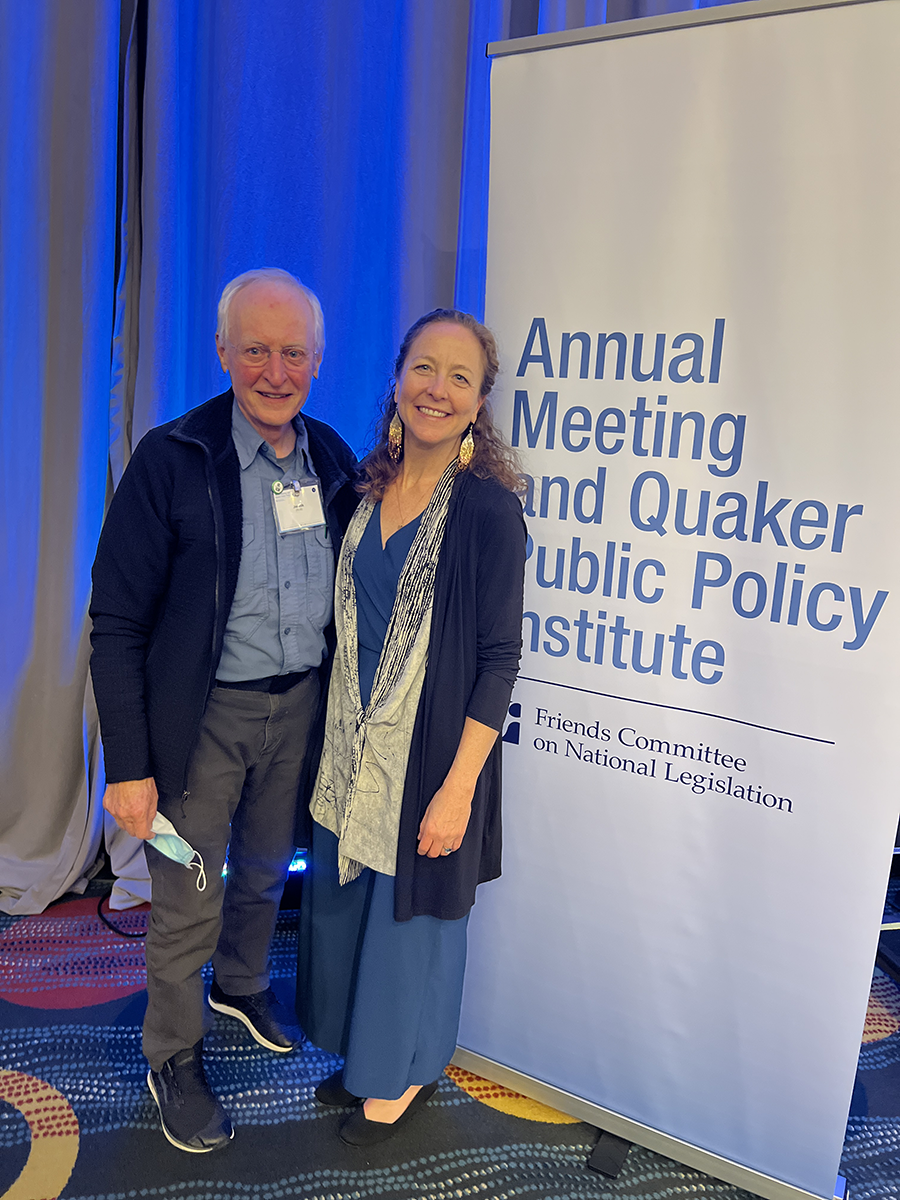Joe Volk served as FCNL’s executive secretary from 1990 to 2011. With the 118th Congress now sworn in, we caught up with Joe to learn more about lessons from the past that can be applied to today’s political climate.
You were FCNL’s executive secretary for nearly two decades. How did Congress change over that period? How did FCNL’s priorities change?
I started on April 1, 1990. I picked that day because everyone said that it was a fool’s errand to fix Congress and that nothing happens there.
At that time, we were focused on what would be possible now that the Berlin Wall had come down and the Cold War was ending. What would the new paradigm be for peace and security?
It was a chance to finally get away from these huge military budgets, huge military alliances like NATO, and create other structures.
That thinking lasted until August 1990 when Saddam Hussein invaded Kuwait. Then the military-industrial complex had just what they wanted.
Later, in 1995, Newt Gingrich became speaker of the House. From then on, you began to see a decline in what seemed to have been a more civil engagement on policy issues and a drift into name-calling, personality assassinations, and so on. That just gradually became uglier, until finally, a lot of FCNL’s friends in Congress left by the 2000s.
It became harder, although not impossible, to have these bipartisan conversations that were so important to FCNL.
What is important to keep in mind as FCNL continues to expand and grow in the coming years?
The future of FCNL is not with grants from foundations, although those are important. The future is not with big, deep-pocket donors, although they are very important. It really is the support of the population of people across the country who feel invested in this experiment.
What aspects of congressional advocacy have remained the same over the years, even in the face of growing gridlock and division?
People have to be making demands in the streets, and then someone has to go on the Hill and translate those demands into actual policy. Without the movements doing their part, and without connecting those movements to public interest lobbyists on the Hill, it is unlikely to succeed. You need that cooperation to make this work. No matter how Congress changes, no matter how bad it might seem to get, that is an essential relationship that needs to be maintained.
How does the division of power in Congress affect FCNL’s strategy?
We are now in a very, very dangerous moment. Previously, when Congress was divided, the conversation could still be about policies. You could disagree, but you could also define the problem in a way where everyone would be able to work on it. In my impression now, especially with the new majority in the House, [the conversation] is not focused on policy. It is not defining real problems. It is trying only to win and exercise power and to do that by demeaning the opponent and by raising tons of money through misinformation and disinformation.
That poses some tough questions to FCNL, not the least of which is figuring out, “What does it mean to be non-partisan in this situation? I do not believe that non-partisan means you have to work with people who think the Constitution should be overturned, or that you should work with people who think it is okay to engage in violent disruption of the government. You have to name these things as unacceptable, and at the same time, you have to keep working on what you can get done.
Excerpts from an interview with Alex Frandsen.

